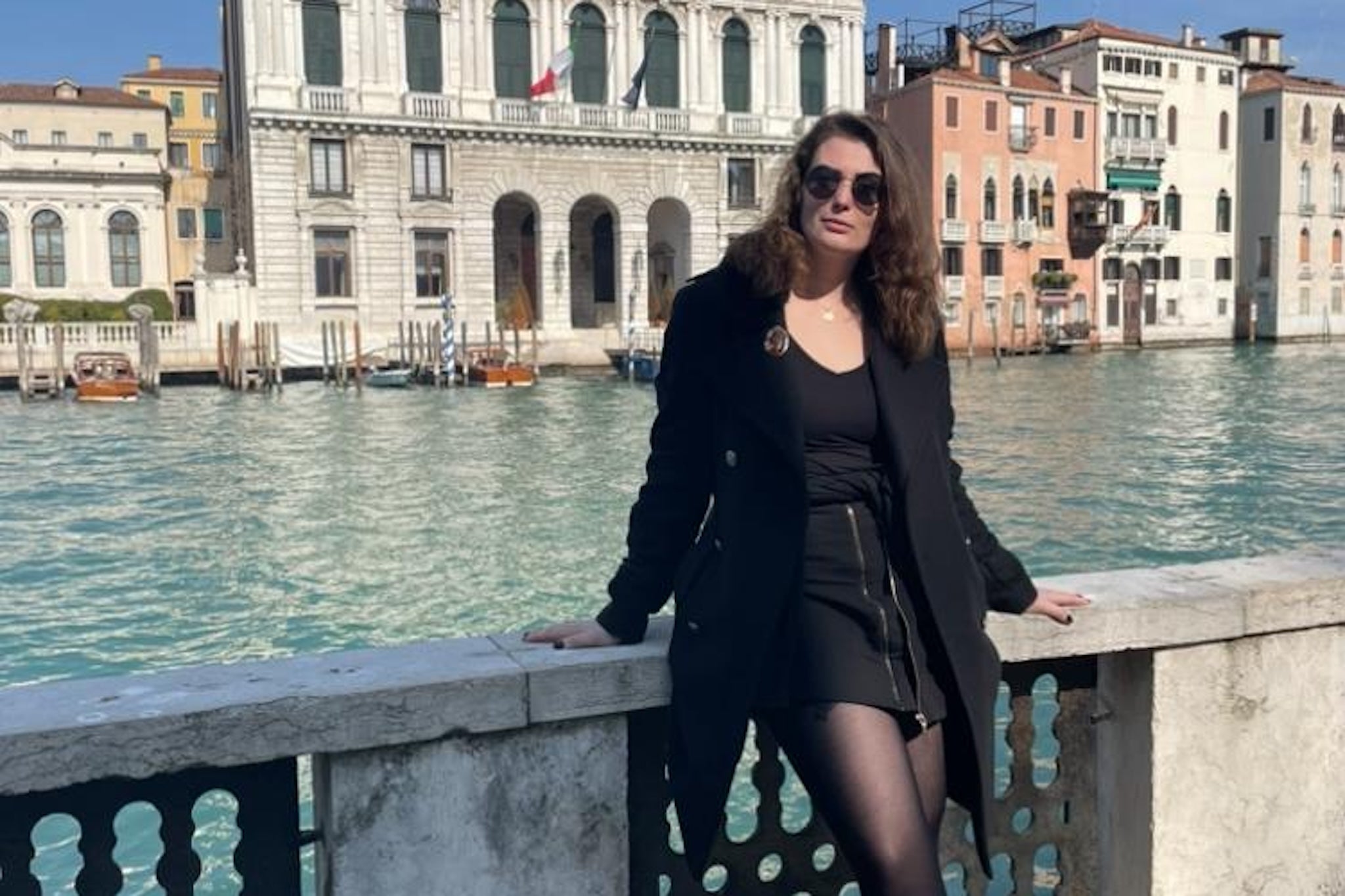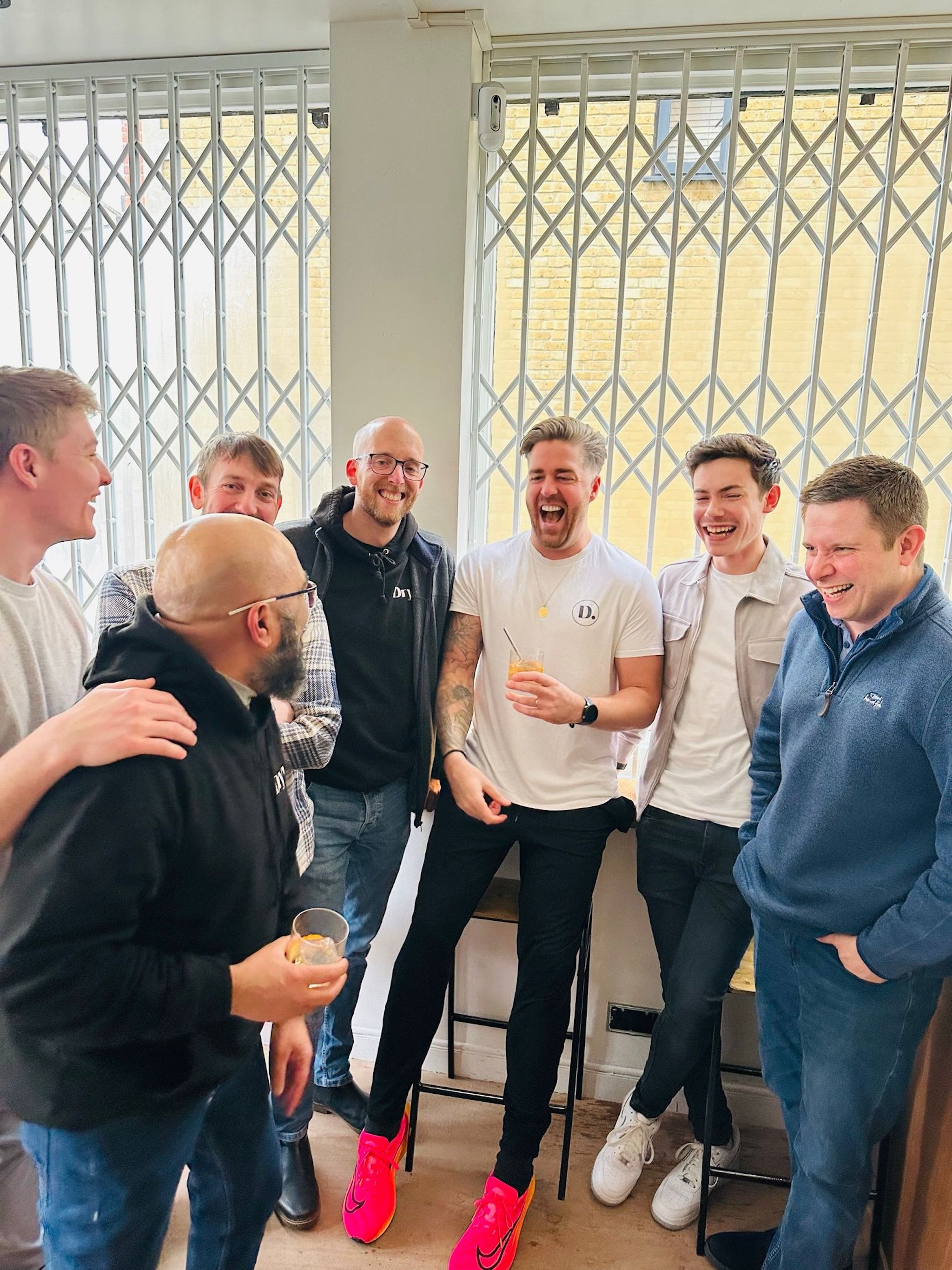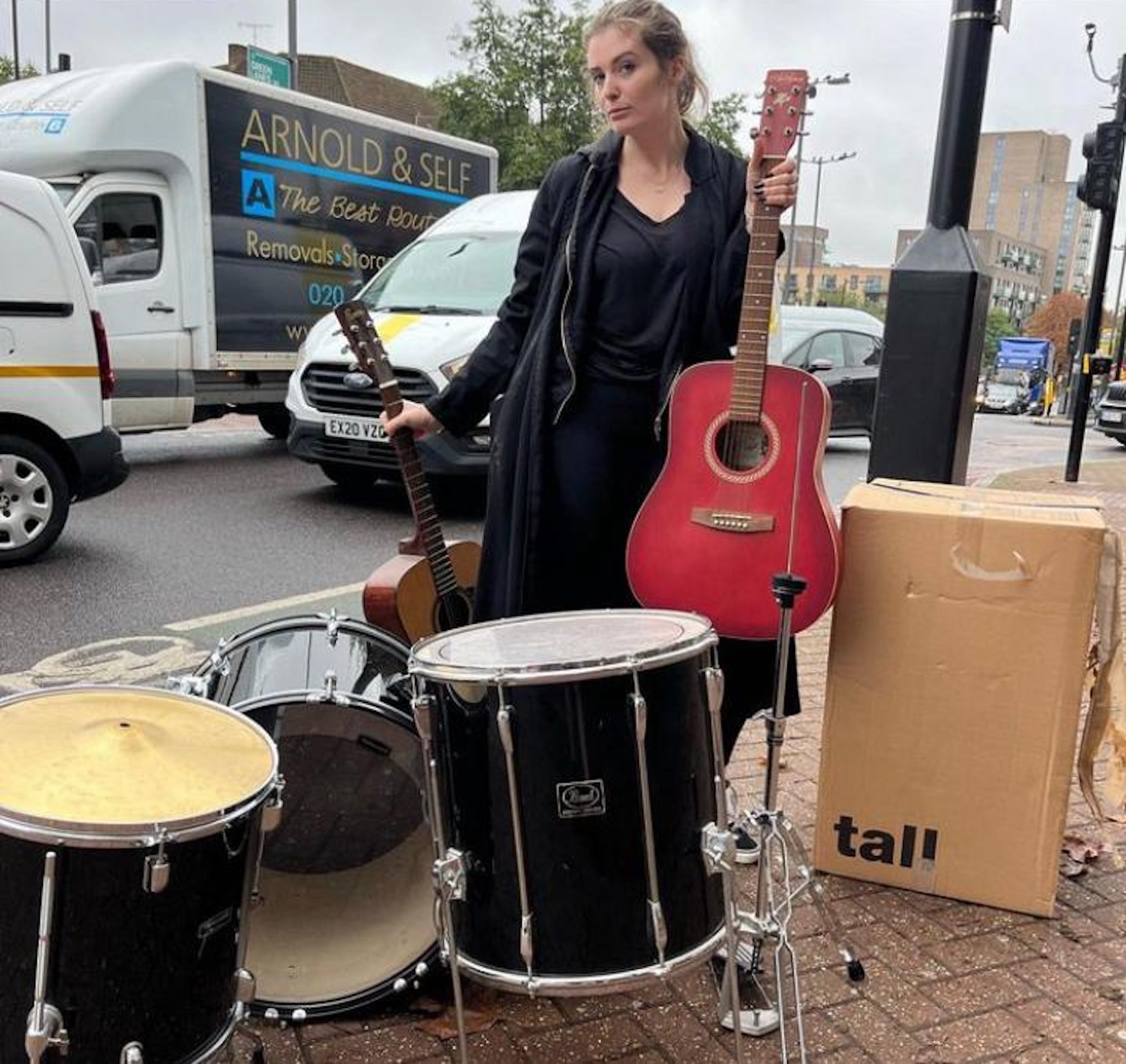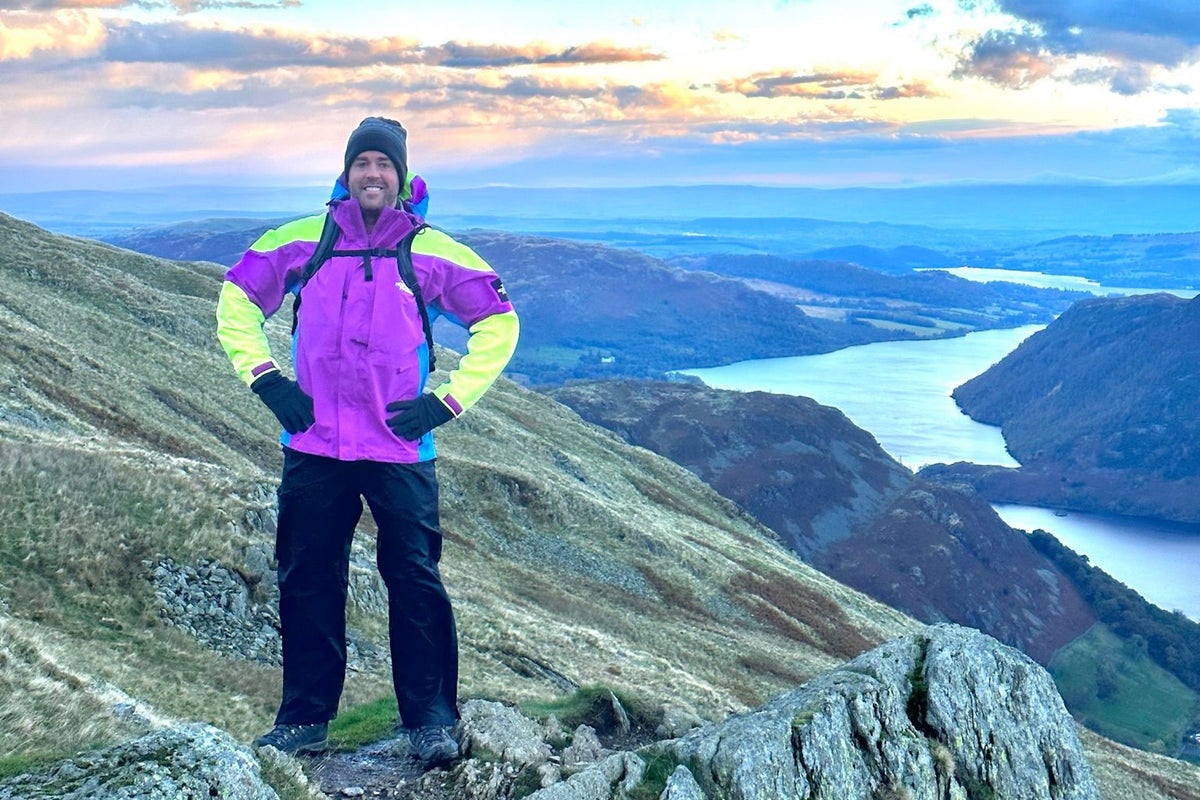When Lauren McQuistin was in the grip of alcoholism, sobriety didn’t only seem impossible – it seemed pointless. Sobriety was something for other people to strive for. People who had lost everything and had something to reclaim: a family, a house, a partner, a career. “I was 19, and no one was depending on me,” says Lauren, now 32. “I never had enough to lose in the first place, so I couldn’t see the point of getting sober.”
On paper, Lauren had plenty going for her: she was a gifted opera singer, a graduate of the Royal Conservatoire of Scotland in Glasgow, and studying for her Master’s at Yale School of Music. Her future was bright. Inside, though, she was screaming. Growing up “depressed, a little bit weird, and so scared” in the remote town of Stranraer in western Scotland, drinking had been part of her and her friends’ lives since they were 13. But almost as soon as she started, she realised her approach was different. While her mates were getting silly and sloppy, she was aiming for blackout. “People were beginning to distance themselves from me, because the libertine was becoming a liability,” she says.
In a psychiatric ward after Lauren attempted suicide at 19, doctors warned her that she might not live past 25 if she continued drinking in the same vein. Even this didn’t faze her. Her life and sanity were in danger, but she couldn’t see it. She continued drinking for nearly six years. It took several attempts, but with the support of a compassionate university doctor, the 12-step programme, and a close circle of trusted friends, she eventually got sober – and has been ever since. “I was a highly therapised person. I’d heard every theory about what was wrong with me,” she says. “But no one was telling me how to get sober, or how to build a life I didn’t want to run away from.”
One thing she did know was that she wasn’t alone. Research suggests around 45 per cent of UK adults either struggle with addiction themselves or have someone close to them who does – and yet real, practical guidance can feel scarce and inaccessible. It’s into the gap that Lauren wrote No Lost Causes Club: An Honest Guide to Recovery and How to Find Your Way Through It. Warm-hearted, wise, and often very funny, much like her Instagram account @brutalrecovery, where she posts memes and advice to 180,000 followers, the book is part memoir, part practical guide. It’s an intricate account of what it takes to recover, and a deeply compassionate roadmap for anyone who wants to try.
Ringing through its pages is a loud, radical question: who might you become without the thing that once numbed you? The first myth Lauren dismantles is that sobriety demands self-erasure. In losing her “anaesthetic for life”, she feared she might also lose what made her herself: her friends, her creativity, her rebellious streak. On a more basic level, she worried she’d become a crashing bore. And it’s not a baseless fear. Despite a growing wave of sober curiosity, drinking and drugs still weave through much of British social life: from after-work pints and bottomless brunches, to gallery openings and even baby showers. It’s easy to imagine that, without a drink in hand, you’ll be on the outside looking in.
But for Lauren – and for many others – sobriety didn’t mean losing herself. It meant deepening her relationship with herself. Beyond the clichés of spirulina smoothies and early mornings, what unfolds is often surprising: joy, creativity, and even a kind of defiant fun. In speaking to people who’ve embraced sobriety, a new picture emerges, one where life after alcohol isn’t about restriction, but expansion.
The fear of being boring resonates with 30-year-old Londoner Simone, who used to use alcohol and drugs to boost her confidence. Her life increasingly revolved around alcohol and drugs – cannabis, MDMA, speed, and cocaine – but that came at a cost. She found herself in chaotic, sometimes dangerous situations: getting into fights, being robbed, even spat on in the street. Often, she found herself in vulnerable situations with men. It left Simone feeling lost and unsafe.
By 21, while studying for her undergraduate degree, she realised she needed to get clean. But the fear of what she’d lose, and what her peers would think was an obstacle. “I’d sit in Narcotics Anonymous (NA) meetings in a church on a Friday night thinking: what the f*** has my life come to?” she says. “I was surrounded by old white men who’d all taken crack and heroin, and I couldn’t relate.” So, Simone sought belonging on her own terms. She started doing the 12 steps and created a splinter NA support group for young people like her. “The level of closeness I have with them is like nothing I’ve ever experienced,” she says. She still meets regularly with them today.

The early days of sobriety are about relearning how to do life, which Lauren calls “a second puberty”. But it wasn’t a punishment for her; it was an area of exploration. She had to reconnect with her senses, to figure out what lit her up and excited her beyond alcohol and drugs. It was awkward, painful, and often illuminating. “Still shaky on my feet, I challenged my idea of exactly what a sober life could be,” she says. “There were moments of truly exquisite joy, like my first pole dancing class, and having a picnic in the park with a new friend.”
Matt Pink, who is 42 and lives in Milton Keynes, found himself trading the highs of drinking for something subtler – “little moments, that actually were just broken-down versions of the bigger moments.” A cup of coffee he could actually taste. The way a sunset looked. Getting to the gym when he said he would. “In sobriety, I couldn’t believe how long the days were,” he says. “When I was drinking, I chopped the ends off my days – blurry, hungover mornings and then sessions that ran late into the night.”
Working in the fashion industry, Matt’s schedule revolved around London’s West End: decent money, glamour, fashion shows, and endless parties. Champagne flowed. Cocaine was a mainstay. None of it felt out of the ordinary. Then, in 2013, his son died of sudden infant death syndrome. His world fell apart, and he began turning to drugs and alcohol for more than just fun. “I felt I had to in order to cope with the pain and grief,” he says. “Being on that path for several years, I lost everything.” It reached a point where he was walking around the city with a bag of clothes and no clue where he was sleeping for the night.

After failing to connect with the counsellors his employer had organised, on a whim, Matt booked an appointment with a medium (a person purported to communicate with spirits or entities from the afterlife). Although he had some initial reservations, it turned out to be the most incredible half hour of his life. “All the stuff she told me was totally true, and at the end, she said my son had visited her and that he would be fine,” he recalls. “The most tragic thing about losing a child is not knowing they’re alright, but for the first time since he died, I felt at ease.”
Several years later, with the support of his partner, now wife, Matt got sober during the 2020 lockdown. He’s since co-founded his own app, Dryy, aimed at people who don’t identify as having a drinking problem, but who are unknowingly held back by alcohol. With over 30,000 users and a thriving Instagram community, connection has been central to his recovery.
The people you surround yourself with give shape to sobriety. “We cannot do this alone,” says Lauren. “Choosing to stay sober in a world that glorifies alcohol – you have to find a place your sobriety fits in.” For her, that meant seeking out people who believed life could still be “exciting, beautiful and fulfilling – alongside the spirals, abysses and sexy depressions”. Making more friends (sober and otherwise) was a revelation: proof that abstinence didn’t make her boring. “Me not drinking didn’t hinder my friends or their fun, and I wasn’t Lauren: The Sober Freak Friend,” she says.
While support systems are essential, it was the discovery of new interests that brought unexpected surprise and delight for Lauren, Matt, and Simone in recovery. Matt, now a father of five, learnt to ski at 39 and tackled a red run earlier this year. “I did it half on my arse, sure, but I did it,” he laughs.

He also runs a men’s group that meets regularly and travels together. They’ve done the Yorkshire Three Peaks, and visited Ireland, France, and Germany. “We do all the usual lads’ trip stuff just without the nightlife,” he says. “Still, it’s always full of belly laughs.” Simone has learnt to drive, and uncovered a boundless appetite for hobbies: yoga, lifting weights, travelling solo, walking, being in nature. She’s applying for a promotion at work and has a brilliant relationship with her partner.
Sobriety doesn’t just strip things away – it makes room. Room to rediscover what you love, to try things you never thought you could, to notice the everyday joys that used to pass in a blur. It’s not always simple, and it’s rarely tidy, but for many people like Lauren, that process is where the real beauty lies.
Some names have been changed
‘No Lost Causes Club: An Honest Guide to Recovery and How to Find Your Way Through It’ is published on 17 July
If you or someone you know is suffering from alcohol addiction, you can confidentially call the national alcohol helpline Drinkline on 0300 123 1110 or visit the NHS website here for information about the programmes available to you.


